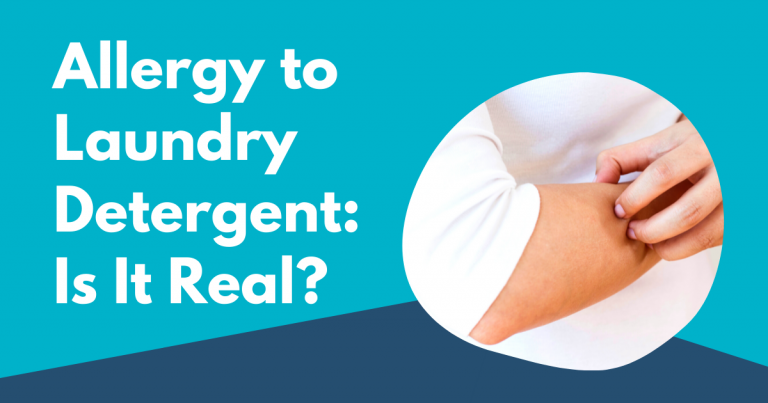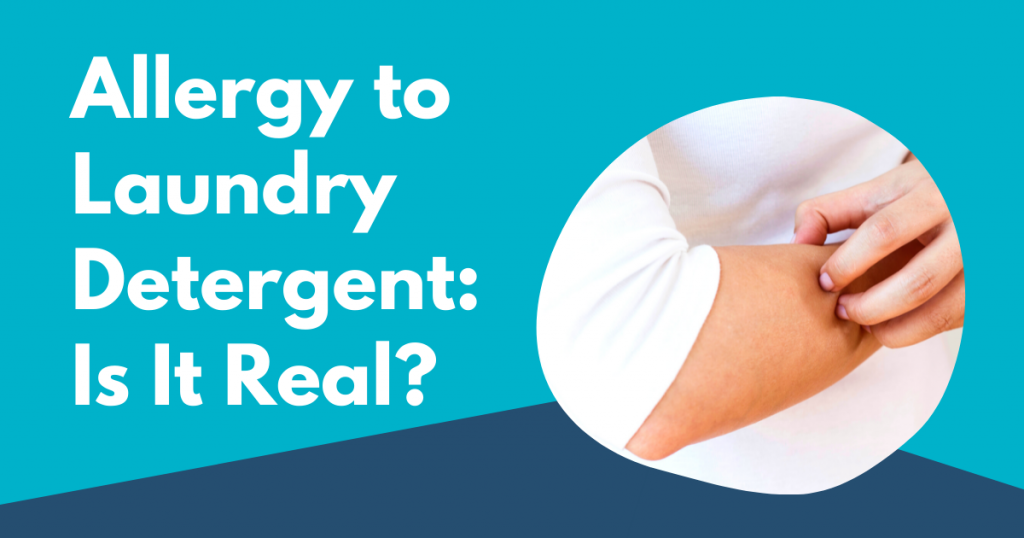
Allergies can often be very annoying, especially if you experience them daily. Sudden itchiness under your nose, eyes, or skin can ruin your day. There are various allergic attack triggers. It can include exposure to allergens, foods high in protein, insect bites, and even medications.
One of the most common allergies is dermatitis or skin rash. Various factors can cause this. It can include old make-up, a harsh bar of soap, or even a toner you added to your nighttime routine. Yet, laundry detergent allergy is something you should not cross out.
Laundry detergents contain a high concentration of harsh chemicals and fragrances. They can pose a health hazard to susceptible household members. While laundry detergent allergy is rare, you should not take it lightly.
Is It Possible To Have An Allergy To Laundry Detergent?
During the 70s, various reports link allergic contact dermatitis (ACD) to detergent. The common culprit is optical brighteners found in laundry detergent. Yet, there is little published data that support these claims.
Allergies due to laundry detergent are somehow low. But, there is always a possibility that it may lead to irritation. It is especially true for people with sensitive skin.
You must clean your clothes, linens, and other washable fabrics that you use. Unfortunately, soap or detergent used to wash them can cause allergic reactions. A rash usually happens when these products come into contact with your skin.
Detergent allergy can develop when you use a product the first time. But it can also occur even after repeated exposures to a product. However, you can prevent allergy using dye-free or fragrance-free detergents.
What Causes Laundry Detergent Allergy?
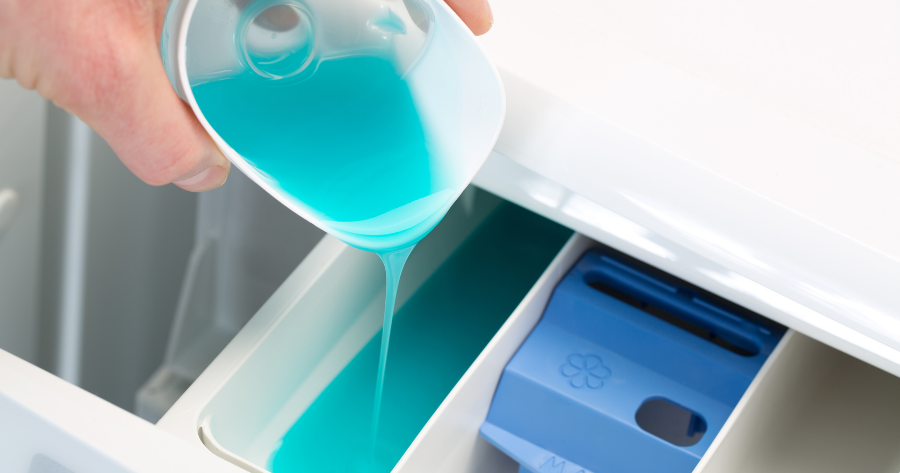
You are exposing your skin to harsh chemicals when you hand wash clothes. The harsh chemicals can remove oils and moisture in the skin. When it penetrates deep, it can cause a red itchy, scaly and itchy rash.
Yet, you can even develop allergies when you are machine washing your clothes.
Here are common allergens found on laundry detergents:
Surfactants
Detergents contain a chemical called surfactant which loosens dirt and oil particles. Surfactant also allows soils to be washed away during the rinse cycle. Sometimes the irritant is these cleaning items. Surfactant is a culprit that can cause itching and poses serious health problems.
Detergents also contain harsh chemicals that may cause a rash. These components include amidoamine and Cocamidopropyl betaine. However, it is hard to determine the specific surfactants used in a product. It is because companies do not put the exact information on the label.
Preservatives and dyes
Preservatives and dyes are also known to cause allergic reactions and sensitivities. You are more likely to have an allergic reaction if you have eczema or existing skin allergies.
Fragrances
Fragrances make your clothes smelling fresh and clean. However, at least 1% of the adult population has a fragrance allergy. Companies that make laundry detergents often use blends of scents. It makes it hard for customers to identify what is in them.
What Are The Symptoms Of A Detergent Allergy?
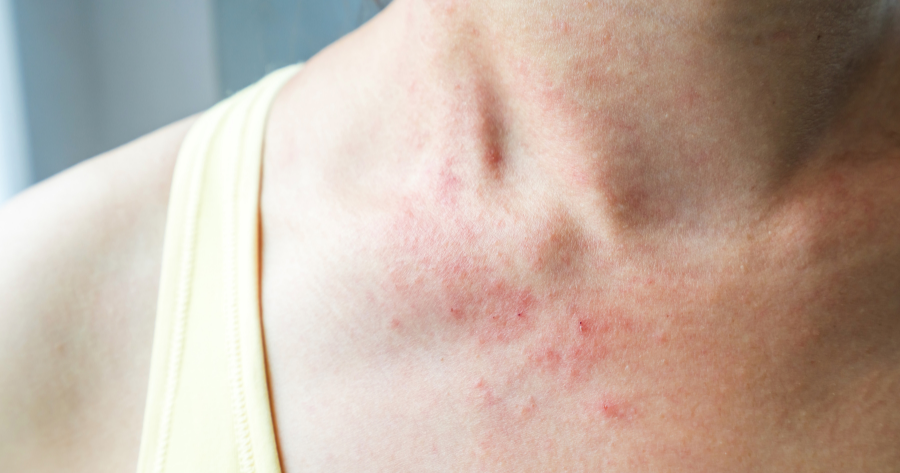
Skin rash or hives are common symptoms of allergy caused by laundry detergent. You may also experience sneezing or itchy watery eyes if you are allergic to the product’s scent.
The skin can develop contact dermatitis when it reacts to harsh components. Contact dermatitis poses as a red itchy rash on the skin.
Meanwhile, atopic dermatitis can make the skin scaly, cracked, or leathery. One may also experience burning or itching, blisters that are sensitive to sunlight. These symptoms vary depending on how the immune system responds to the allergens.
How Do You Know If It Is A Laundry Detergent Allergy?
- If you are a side sleeper and observed rashes on one side of your face, then the pillows could be the culprit. The soap used on your pillow can cause an allergic reaction when rubbed on your face.
- If there are rashes in areas where clothing feels tight, it could be a detergent allergy. The places could be the underarms, behind the knees, in the crook of the arm, or between the legs. Soap residue on the fabric can come into contact with tight areas of the body. It may cause itchiness and rashes due to the rubbing of clothes into the skin.
- If it is sudden, and you recently changed your detergents, then it could be it.
Remember that it is best to see a dermatologist who can perform a patch test to be sure.
Measures You Can Do To Avoid an Allergic Reaction to Laundry Detergent In The Future
Laundry detergents are essential in keeping clothes fresh and clean. But we also want to be free of irritating rash or itchy nose and eyes from laundry detergent residues. These are some of the ways to prevent them:
1. Rinse your clothes again
Rinse your clothes twice. It will treat the lingering detergent residues and stains.
2. Use less detergent
Many people use too much detergent on a high-efficiency (HE) washing machine. It leads to the caking-in of powder into the clothes. You can use this guide to know how much laundry detergent to use for your laundry.
3. Switch detergent
If you have sensitive skin, it is time to switch to a chemical-free detergent brand. You can also opt for a hypoallergenic laundry detergent.
4. Use white vinegar or baking soda as alternative stain removers
Vinegar
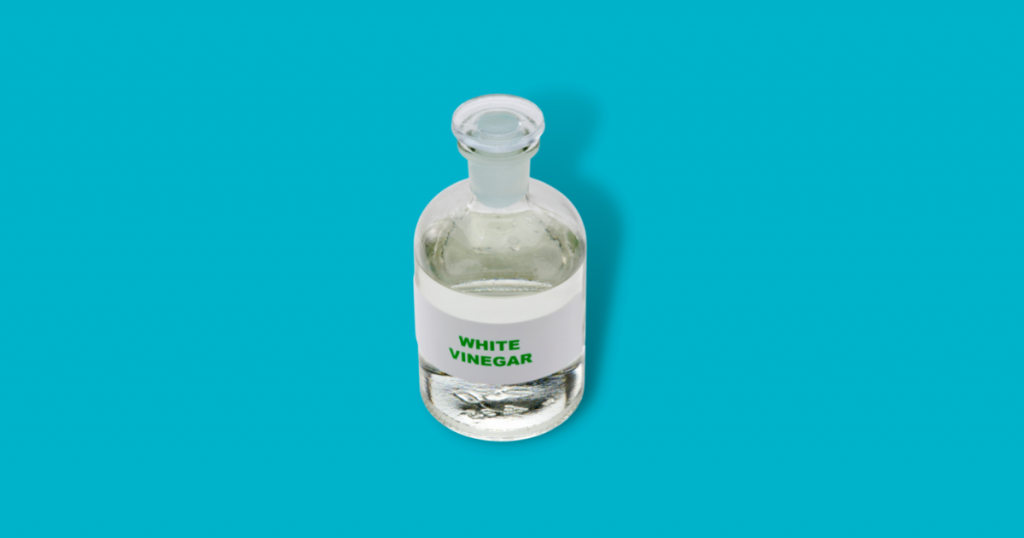
White vinegar is an efficient cleaner and deodorizer. It can clean most fabrics without damaging them. You can even white vinegar as a fabric softener.
Add a cup of distilled white vinegar during the rinse cycle. White vinegar will soften your clothes and keep them smelling fresh.
Baking Soda
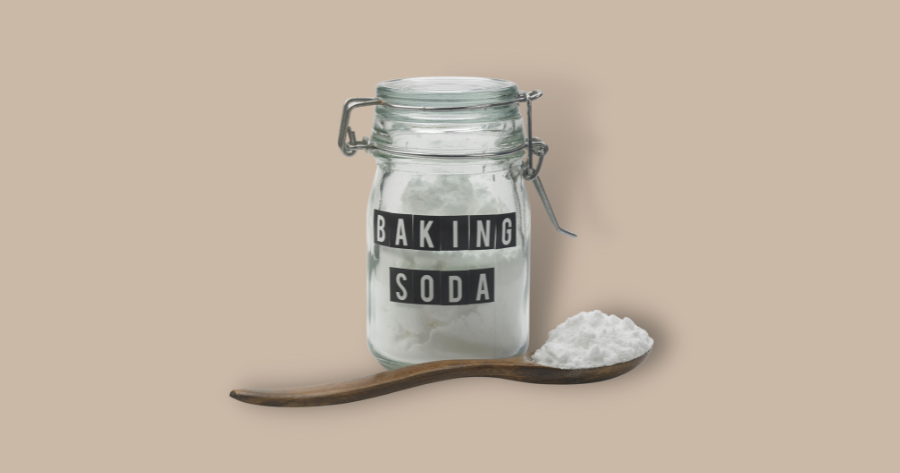
Baking soda is another laundry staple that can clean as it deodorizes. Moreover, baking soda can also brighten your whites. It is a natural detergent alternative that will not damage your fabrics.
To use it, add half a cup of baking soda into your dispenser during the wash cycle. You can also add another cup as you rinse your laundry.
If you want to use other laundry detergent alternatives and other stain removers, you can check out this post.
Use Dryer Balls
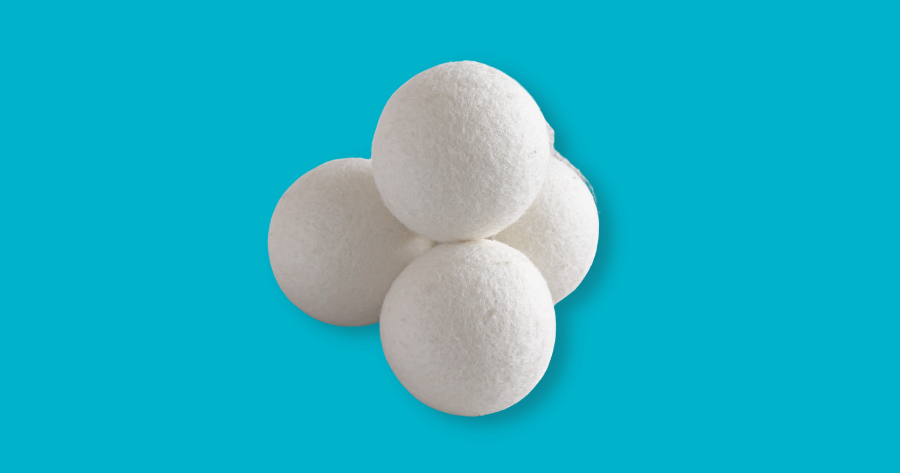
To help to minimize the use of chemicals, skip using a softening agent. Instead, use dryer balls made of plastic, rubber, or wool. They can help reduce static without the use of chemical irritants.
5. Moisturize
Before you get dressed, use moisturizer all over your body. Not only is it beneficial to you, but it prevents direct contact between your skin and the fabric. That way, residues have a more difficult time penetrating your skin and causing a rash.
6. If possible, avoid strongly scented detergent products
We all love fragrant fabric. But most detergents use synthetic fragrances that can cause rashes. The smell may also irritate you, especially if you have allergic rhinitis.
If you would like to add scent to your load of laundry, essential oils are great and they’re all-natural.
7. Dry clothes under the sun
UV light from the sun can kill bacteria and viruses. It tends to be fresher when dried under the sun and may save you from washing it often. It reduces your exposure to laundry detergent.
8. Use fragrance-free detergent
Artificial fragrances and dyes are the most common culprits of rashes. Most allergy-free laundry detergents are vegetable-based, scent-free, and dye-free.
9. Stick with one detergent
If you do not have skin reactions to the laundry detergent brand you are using, it is best to stick with it.
10. Clean your washing machine
To remove the residual granules, clean them after every load. A hot water cycle with vinegar and baking soda can clean soap scum buildup from the tub.
Wondering how often you should clean your washing machine? Check out this post.
In Conclusion
Each person’s skin reacts differently. What works for you may not work with others. When treating your laundry detergent allergy, you will need to do some experimentation. You can try a couple of laundry detergents until you find the one that suits you best. Be careful when you are prone and sensitive to rashes or if you have eczema. Check your laundry detergent if it contains chemicals that are not safe for your skin.
Want to share this?

